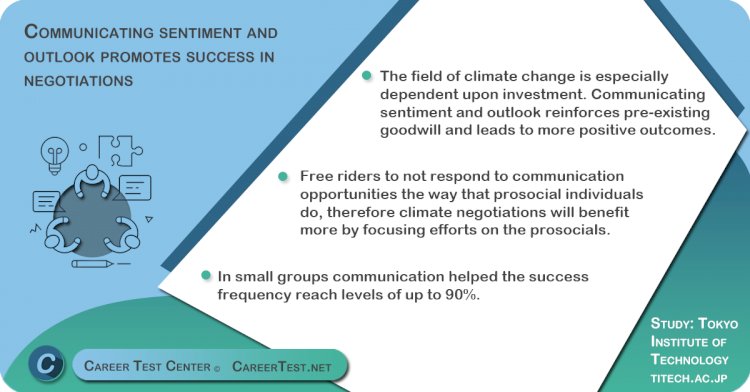Communicating sentiment and outlook promotes success in negotiations
The field of climate change is especially dependent upon investment. Communicating sentiment and outlook reinforces pre-existing goodwill and leads to more positive outcomes.

by Tokyo Institute of Technology
Main titles
- An experiment was devised to reveal how group size, communication and behavioral type affected prosocial action.
- Three behavioural types identified in the study are: cooperators, altruists, and free riders.
- Climate change mitigation negotiations are enhanced more by the cooperator and altruist behavioral types in the test groups.
- Cooperator and altruist types displayed more optimism in their outlook and in the negotiations.
- Prosocial individuals combat investment deficits more effectively and are better at confronting inaction.
- Free riders to not respond to communication opportunities the way that prosocial individuals do, therefore climate negotiations will benefit more by focusing efforts on the prosocials.
- Communicating sentiment (i.e. emotional state and satisfaction) and outlook (i.e. expectations and aspirations) reinforces pre-existing goodwill and leads to more positive outcomes.
- In small groups communication helped the success frequency reach levels of up to 90%.
- Communication helped the free-rider behavior type become more optimistic and confident about the outcome.
- Communication leads to coordination and greater possiblity of project success.
- There is usually an inverse relationship between communication and group size.
- In larger groups investiment deficits tended to be higher due to the fact that more people were expected to contribute and failed to do so.
Source: titech.ac.jp

 vneo
vneo 

















